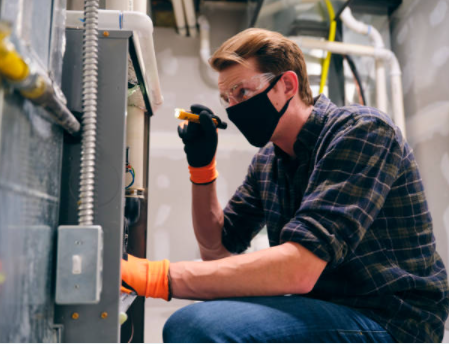Do I Really Need My Furnace Tuned-up And Maintained?
- Barret Beaudry (CPI)
- Oct 1, 2022
- 3 min read
We recently received an email from a client that was asking about furnace tune-ups and maintenance. They were asking us if it was really necessary - here's the original email.
“I have a question about furnace tune-ups and maintenance. In your home inspection report, you recommended that we should get the furnace serviced when we move into our new home and maintain it every year after that– is this really necessary? What do the HVAC guys actually do to the furnace to ‘tune’ it up? Furnaces don't have spark plugs that need to be replaced and there's no oil to change like a car.... It's my understanding that all they do is basically vacuum out dust and visually inspect it. Couldn’t I do this myself? Or do I really need to pay $125 to $200 when I move into my new 9-year-old home and then every year after that for a professional to do it?”

Are yearly furnace inspections really necessary?
Most furnace manufacturers recommend annual inspections and maintenance tune-ups by a qualified HVAC tech. They also have language in their warranties that states that damage to the units caused by improper maintenance is not covered under the warranty. Does this mean that a yearly furnace tune-up is really necessary, or the warranty is voided? Probably not, but it’s recommended. The best analogy is going to the dentist every six months for a checkup and cleaning; it's not always necessary, but it is recommended.
Some HVAC contractors recommend getting newer furnaces checked every second year, but once they’re more than 10 years old, have them checked annually.
What do HVAC techs actually do to a furnace to “tune” it up?
According to James Fowler, a local HVAC tech who has worked for several contractors over the past 28 years in Calgary, the services you get when you purchase a $50 Groupon coupon is going to be very different than a $200 maintenance “tune-up.” Fowler said that every contractor he has worked for creates carefully worded language with subtle differences in the descriptions, making it nearly impossible to compare services between different heating companies. A few services you may have heard of are “safety checks,” “certifications,” “check-ups,” “tune-ups,” “basic tune-ups,” “complete tune-ups” and “annual maintenance checkups.” There seems to be no industry standard for a furnace tune-up, so what’s included in a “tune-up” will vary greatly from company to company. If you’re going to hire a heating contractor to do a tune-up on your furnace, ask them what they’ll be doing.
Included below is a partial list of service items that different furnace manufacturers recommend be performed annually by a qualified heating tech:
Lubricate motor bearings and other moving parts
Check and adjust fan belt tension
Voltage and current checks
Tighten all electrical connections
Inspect heat exchanger
Test exhaust system
Inspect and clean burner
Verify and adjust gas pressure
Test ignition system
Check connections to gas or oil lines
Test and verify system controls
Inspect condensate drain and clear, if needed
Clean interior and exterior of the furnace
Change air filter
Test carbon monoxide levels
Inspect and calibrate the thermostat
Can homeowners do this themselves?
Of course, but the only homeowners that I know of who are knowledgeable enough to perform the tasks listed above also happen to be heating technicians. If the only thing your furnace tech does is stick a vacuum nozzle into the furnace and suck a little dust-out, sure, do it yourself. If your furnace tech does half the stuff on the list above, they’re earning their keep.
Before you hire a company to do a tune-up or maintenance on your furnace, ask what's included. The company doing the work should be able to quickly rattle off a detailed list of services they’ll be checking.
Do I really need to pay $125-$200 every year for a professional to do this?
In short, yes. This is what professional contractors charge — and possibly even more. For most heating techs, $150 barely covers the trip charge. Keep in mind, this isn’t just about safety; it’s also about preventive maintenance. It’s about sometimes catching a problem before your furnace stops working in the middle of winter close to Christmas. When you have to call a contractor on a Sunday evening when you and your family are starting to shiver, you’re probably going to end up paying emergency rates.
Author: Barret Beaudry- Oct 2022
Solitaire Home Inspections Ltd.






Comments